
16 Common Grammar Mistakes to Watch for in Your Novel
English grammar is so confusing!
As a person who has spent most of her life studying grammar, I can tell you the language is one of the most complicated you could learn.
Why?
Grammar rules follow from subjects like math, science, and nearly everything but the original forms of the language itself. And unlike many romance languages, English grammar didn't come about due to the natural way people talk (which evolves over time and space). So today's English speakers don't use grammatically correct sentences most of the time — making things even more confusing.
The point is that you shouldn't feel ashamed if you miss an error.
We all make mistakes. The most likely reason for mistakes in your novel is that you either slacked or skipped the editing process altogether. No matter how talented you are, all novelists and editors alike miss little errors sometimes. Some novels need a second pair of eyes (or 3rd, 4th, 5th).
Before you publish, self editing your novel ensures you catch any potentially embarrassing mistakes. Make sure to remove the common grammar mistakes from your novel, or your credibility may suffer.
Many readers put a book down after they notice glaring grammatical errors, and other industry professionals might not take you seriously if your self-published novel is full of mistakes. You could see a reflection on your book's sales too.
But I'm here to help!
Use the following 16 common grammar mistakes to know what to watch for in your novel. These are the issues that plague most novels today.
1. Silly Typos
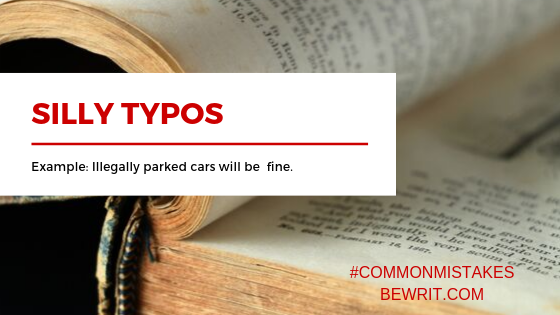
Extra space between words and numbers or letters that don't belong are the most common mistakes in any published work. Silly typos are the little mistakes that everyone is capable of making, whether they're a professional or not. These issues typically result from typing errors rather than a lack of knowledge, and it takes a trained eye to remove them from your manuscript before publication.
2. Sentence Fragments

Also known as incomplete sentences, fragments are incorrect pieces that don't match the main clause. Each sentence must be grammatically complete. If there's no independent thought, a sentence can't stand alone.
3. Sentence Sprawl
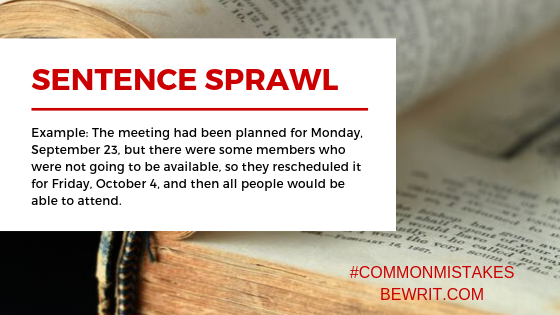
Sentence sprawl is the term that describes when a writer uses too many clauses or phrases. Unlike run-on sentences, they're not often grammatically incorrect. However, they're long and repetitive sentences. Too many clauses and phrases produce a hard-to-read, tiresome sentence.
4. Misplaced/Dangling Modifiers
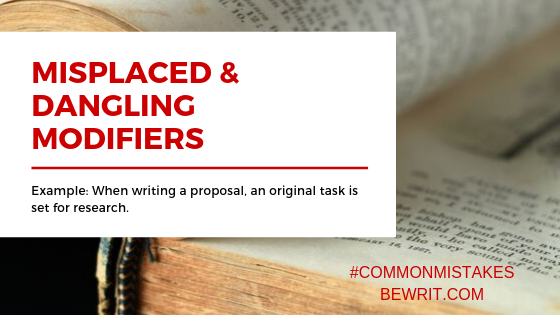
If a word, clause, or phrase is in the wrong place, you might have a misplaced or dangling modifier. This common mistake takes place when the modifier doesn't clearly explain what word it's supposed to modify or describe. Modifiers always go near the word they describe, or the sentence sounds awkward.
5. Omitted Commas
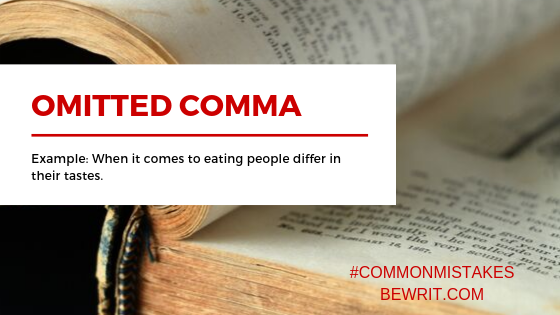
Commas help reduce confusion. A comma's job is to indicate the relationship between various parts of the sentence (like the noun and verb) and the ideas you hope to convey. Without them, a manuscript is like anarchy in the streets.
6. Easily Confused Words
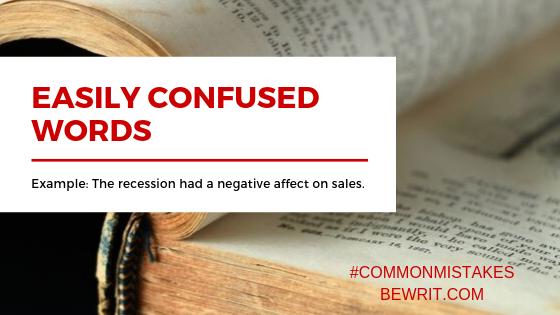
The words many people mix up tend to have alternative meanings or are similar to another word. The #1 pair of most often confused words are effect vs. affect. To help you remember the difference, affect is generally used as a verb. Affect means something impacts change while effect describes the result of the change.
Other commonly confused words include:
- lead/led
- accept/except
- lose/loose
- their/there/they're
7. Unclear Pronouns
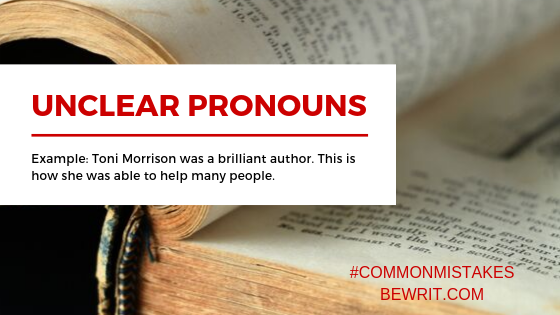
Unclear pronouns occur when it's not clear what the pronoun refers to, and vagueness can make any writing difficult for readers to understand. All pronouns should refer to nouns and use certain words to avoid confusion. Unclear pronouns include words like:
- they
- it
- this
- that
- these
- those
- which
8. Faulty Parallelism
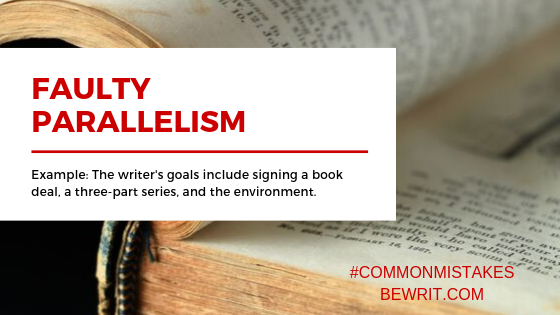
Faulty parallelism takes place when two or more parts of a series are similar in meaning, but not grammatically correct in form. In a series, all of the sentence elements must match the idea that starts the chain.
9. Too Many Adverbs
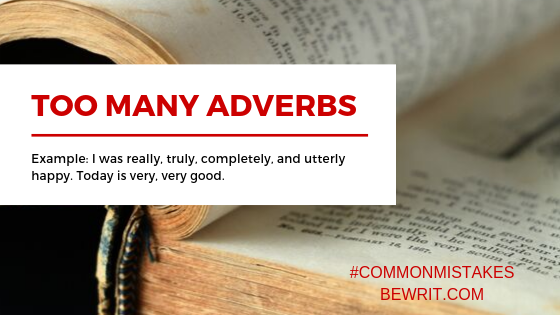
Adverbs envoke intensity, and in writing, they add emphasis to your meaning. However, overusing adverbs creates annoying sentences. They're often unnecessary and don't hold any true meaning to the sentence. Adverbs to exclude from your writing include:
- really
- very
- sort of
- kind of
- truly
- simply
- completely
- absolutely
- literally
- totally
- often
10. Repetitive Sentences
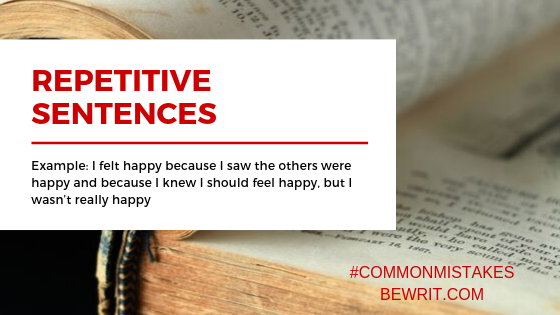
Sentence structure is vital for your overall novel. You have repetitive sentences in a paragraph if they're all organized the same way. While not grammatically incorrect, the structure of each paragraph can become boring for readers. Instead, vary the sentence lengths. Include a longer series, then a short sentence. Alter your patterns.
11. Cluttered Structure
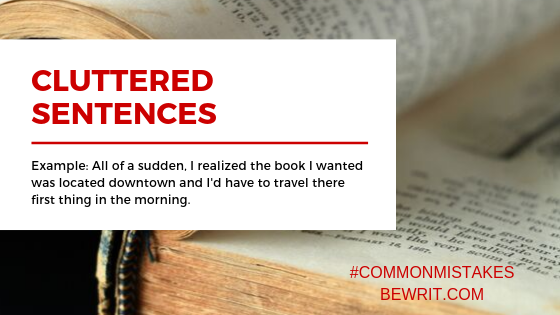
When your novel lacks structure, readers might not understand what your words mean. The writing isn't clear or straight to the point. Unnecessary commas also make sentences more difficult to read. Think about who the audience is and what you want to say before putting pen to paper. Keep it simple.
12. Cliches
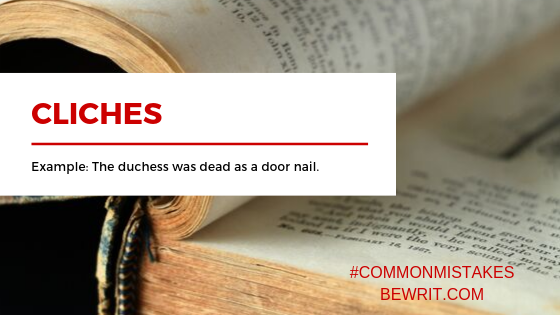
An overly used expression is cliche. Cliches can be words or phrases, and they're often in formal ceremonies. You've probably heard them a million times. Using cliches in a novel makes you sound like a boring newbie.
13. Active > Passive Voice
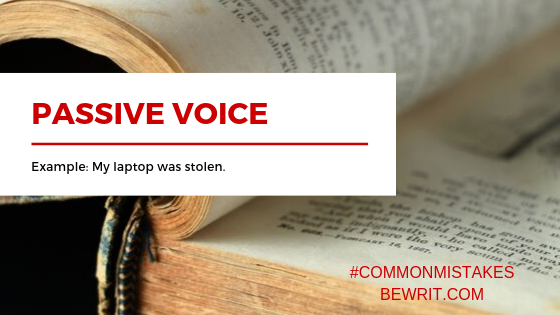
When a sentence is in active over passive voice, the subject of the sentence clearly completes the action. Passive voice switches the order to make the subject receive the action, which is confusing to readers. The emphasis is on the verb instead of the noun. Active voice is more clear and concise.
14. Redundancies
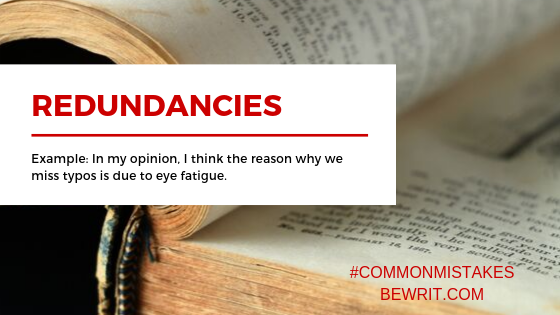
Redundant words or phrases mean the same thing but show up too often. Often, this happens when two words next to each other mean the same thing. In writing, redundancy may appear unnecessary and repetitive. Your readers can become bored. Every word should add something special. Stick to using the perfect amount of words to say what you mean, no more or less.
15. Apostrophes
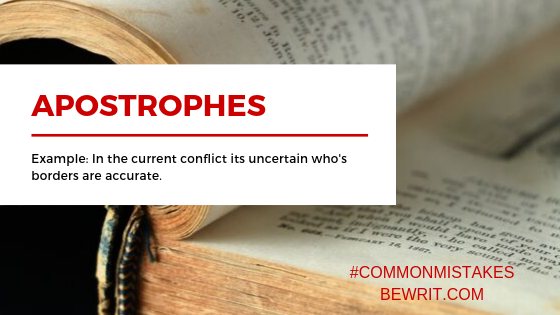
Apostrophes indicate possession for nouns (Eric or book), not personal pronouns (their or my). Or, they create a contraction such as "it's," meaning "it is." You may also see apostrophes stand-in for a missing number, such as in "class of '99." Without appropriate apostrophes, your manuscript is full of grammar issues.
16. A or An
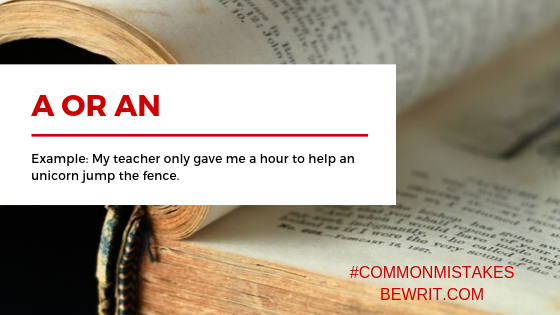
Most people think the rule is to use "an" before a vowel-starting noun, such as a, e, i, o, u, and sometimes y. However, English is more complicated. Grammar says this rule doesn't rely on how the noun is spelled, but how the noun sounds. For example, "an hour" is correct, while "an unicorn" sounds wrong.
Not Sure How to Fix All Your Mistakes?
Remove all errors before publication, and your novel is bound to stand out! The same goes for any other type of writing you do. Common grammar mistakes stand out like a sore thumb. You can learn more about how to write smarter than smart on the blog.
To catch the little things, try using a grammar checker. In my opinion, Grammarly is the best free grammar check tool on the internet. They have an extension for your browser, Word, or an online platform you can use.

If you're not sure how to spot and take care of these common mistakes in your writing, an editor can help. I spend my days working with self-publishers who need another pair of eyes, and the feedback I give is designed to bring out the best in your writing.
Check out the price packages I offer, read testimonials from my previous clients, or contact me to discuss your needs today.






